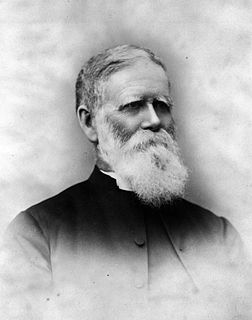A Quote by Robert Green Ingersoll
For the most part, we inherit our opinions. We are the heirs of habits and mental customs.
Related Quotes
We are the heirs of the ages; but the estate is entailed, as large estates frequently are, so that while we inherit the earth, the great round world which is God's footstool, we have only the use of it while we live and must pass it on to those come after us. We hold the property in trust and have no right to injure it or to lessen its value. To do so is dishonest, stealing from our heirs their inheritance.
It is so much easier to rest contented with what we have already acquired than to change ever so slightly those routine but profound habits of thought and feeling which govern our life, and by which we live so blissfully. This mental inertia is, perhaps, our greatest enemy. Insidiously it leads us to assume that we can renew our lives without renewing our habits.
Every thing useful and beneficial to man, seems to be connected with obedience to the laws of his nature, the inclinations, the duties, and the happiness of individuals, resolve themselves into customs and habits, favorable, in the highest degree, to society. In no case is this more apparent, than in the customs of nations respecting marriage.
The life-history of the individual is first and foremost an accommodation to the patterns and standards traditionally handed down in his community. From the moment of his birth the customs into which he is born shape his experience and behavior. By the time he can talk, he is the little creature of his culture, and by the time he is grown and able to take part in its activities, its habits are his habits, its beliefs his beliefs, its impossibilities his impossibilities.
Science attacks our most cherished opinions. Opinions which come straight from our collective gut. Oh, wait, according to gastroenterologists, the only thing that comes from the gut is waste left from the digestion of food. That’s right, “waste.” I guess that means that scientists literally think our opinions should be flushed down the toilet!
Our conceptions of morality, as all our other ideas, pass through a course of development; the difficulty comes in adjusting our conduct, which has become hardened into customs and habits, to these changing moral conceptions. When this adjustment is not made, we suffer from the strain and indecision of believing one hypothesis and acting upon another.
A most important, but also most elusive, aspect of any tool is its influence on the habits of those who train themselves in its use. If the tool is a programming language this influence is, whether we like it or not, an influence on our thinking habits.... A programming language is a tool that has profound influence on our thinking habits.



































